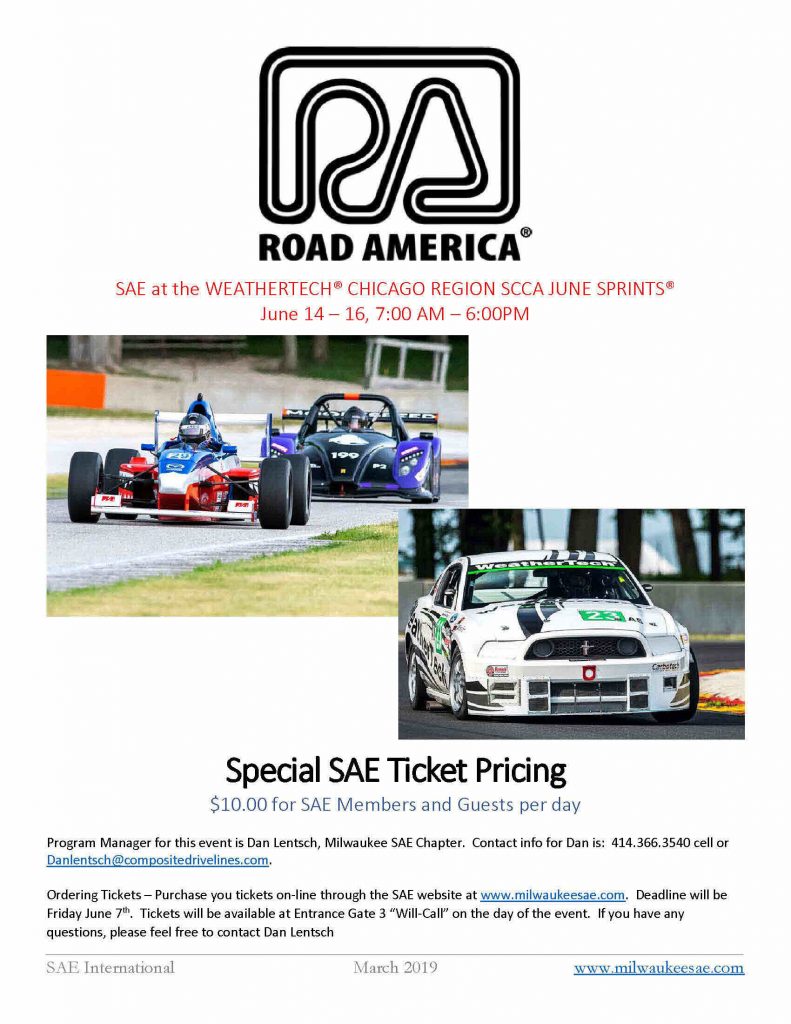
SAE Milwaukee Section – June Sprints Tickets



About the Event :
Wells Vehicle Electronics is manufacturer of engine & vehicle management components such as electronic ignition modules, ignition coils, voltage regulators, camshaft sensors, crankshaft sensors, throttle position sensors, and a variety of custom electronic components. We are divided into two business units – an aftermarket unit that supplies components to aftermarket parts retailers and distributors. In addition, Wells designs and manufactures OE components for non-automotive OEM vehicle and engine manufacturers.
Wells has been in business since 1903. One of our first customers was Henry Ford for who we developed and built a magneto ignition coil. In 2015 we were purchased by and became a wholly owned subsidiary of NGK Sparkplugs based in Nagoya Japan. NGK is a worldwide leader in sparkplugs, oxygen sensors, and technical ceramics. On the tour you will see and hear about the design and manufacturing of electronic modules for vehicles including sensors and voltage regulators.
For the evening presentation, we will cover the following:
Part 1: Wells Overview – Greg Burneske
Wells manufactures a wide variety of sensors for automotive, powersports, and stationary power applications. This session will provide you with an overview of Wells engine management product portfolio including ignitions, sensors, voltage regulators, emissions and custom electronic products.
Part 2: Ignition Coils – Dallas Kissinger
Wells manufactures a line of ignition coils for various automotive applications. This session outlines the design engineering and manufacturing challenges of supplying ignition coils.
Part 3: Sensors – Tim Reitmeyer
Wells manufactures a wide variety of sensors for automotive, powersports, and stationary power applications. This session will provide an overview of sensor types that Wells manufactures and how an oil pressure sensor is made.
Part 4: Voltage Regulators – Dave Hansen
Wells manufactures a line of voltage regulators for non-automotive vehicle applications. This session outlines the design engineering and manufacturing challenges of supplying voltage regulators for non-automotive applications.

